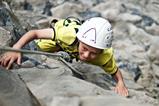Jake Wiid from EVOLVE Advice explains how to be ready for when something unexpected happens on a school trip.

It is impossible to predict what will happen on an educational visit – external events are often out of our control. That’s why, as Educational Visits Advisers, we offer guidance to schools on how to prevent incidents and manage emergencies, so all visits are as safe as necessary for everyone involved.
Be clear on roles and responsibilities of your staff
Ensure that thorough risk assessments are carried out and that each member of the visit team is clear on their role, responsibilities and duty of care. Think about training and development needs for your Educational Visits Coordinators (EVCs) and Visit Leaders – are you confident that all these aspects are understood?
Consider your approach to preventing, planning for and dealing with an emergency. For example:
- Are there appropriate first aid procedures in place?
- Are your team first aid trained? Do they have access to a first aid kit? And do they know who to contact in an emergency?
- Does the visit leader have access to the specific medical needs of the participants and staff?
- How will the team access emergency services? Access to medical support could be limited in certain areas.
- Where is the nearest hospital?
- Are visit leaders trained on how to manage emergencies?

If the worst happens…
Schools should have robust procedures in place to support staff in the event of an incident. Consider your own setting. Do you have these things in place and have you trained your staff on these?
- Do you have clear policies and guidance on incident management?
- Do you have nominated emergency contacts in school and out of hours (and do your visit leaders know who they are)?
- Do you have access to critical incident support? (check your advice service package).
- Have staff have been trained to understand their roles and responsibilities in the event of an incident (e.g. Visit Emergencies Training; Preventing Incidents and Managing Emergencies e-learning; Visit Leader e-learning course).
Schools should have base contacts in place for every visit. It is critical that the base contacts are available for the duration of the visit, can answer the call immediately and have the status to be able to mobilise any required support.
A person in this role should receive training and have access to a check-list or guide to ensure the support is methodical. A critical element of preparation is to test, test and test again.
For more support on preventing incidents and managing emergencies, contact your Educational Visits Adviser.
Useful resources:
• OEAP National Guidance. Visit OEAPng.info and search ‘emergencies’.
• Critical Incident Checklist. Produced by Pharos Response and EVOLVE Advice.
• Educational Visits Emergency Cards for visit leaders.















